|
|
|
|
|
|
Veiled Threats 1999-current
a series inspired by the poems of Agha Shahid Ali
Rooms of wall size paintings in ink on pleated illusion (tulle curtains), 14 x 22 x 28 each
Agha Shahid Ali and Izhar Patkin started their collaboration on “Veiled Threats” in 1999.
In this project, each of Patkin’s veil rooms corresponds to one of Shahid’s poems. |
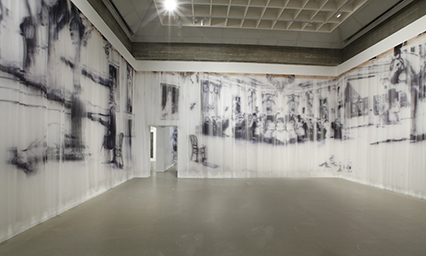 |
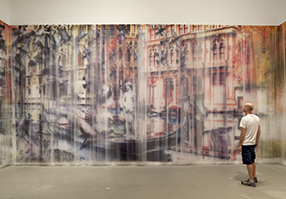 |
.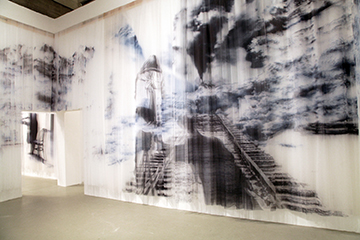 |
Violins 2006
This English version by Agha Shahid Ali (with Ahmad Dallal), was crafted from the poem of the Palestinian poet Mahmoud Darwish:
Violins follow me everywhere in vengeance
Violins seek me out to kill me wherever they find me
Violins weep for Arabs leaving Andalusia
Violins weep with gypsies going to Andalusia
|
|
Evening 2008
after "Evening," a poem by Faiz Ahmed Faiz,
translated from Urdu to English by
Agha Shahid Ali
Some terrible magician, hidden behind curtains,
Has hypnotized Time
So this evening is a net
In which the twilight is caught.
Now darkness will never come—
And there will never be morning.
|
The Veil Suite 2007
Shahid wrote “The Veiled Suite” specifically for his collaboration with Izhar.This was Shahid's last poem. A requiem.
“No mortal has or will ever lift my veil,”
he says. Strokes my arm. What poison is his eyes?
Make me now your veil, then see if you can veil
Yourself from me |
|
|
|
|
|
Recital at the CCJ, Sao Paulo, Brazil
Sept 2010
Caetano Veloso, vocals
Jaques Morelenbaum, Cello
Camera:
Monique Gardenberg, Fernando Grostein Andrade |
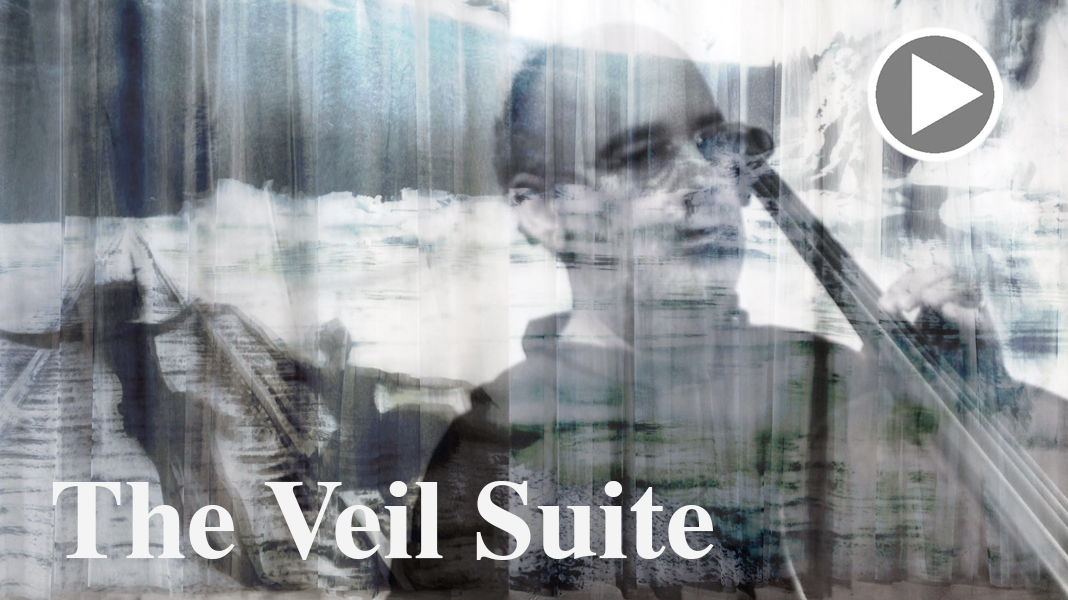 |
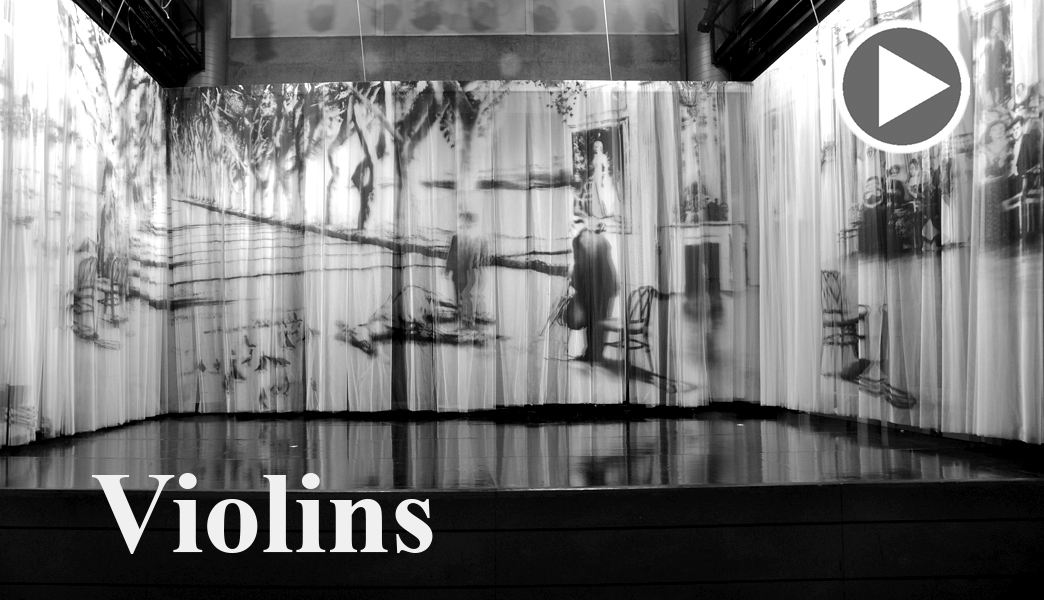 |
|
You Tell Us What to Do 2010
after "You Tell Us What to Do," a poem by Faiz Ahmed Faiz, translated from Urdu to English by Agha Shahid Ali
|
|
|
When we launched life
on the river of grief,
how vital were our arms, how ruby our blood.
With a few strokes, it seemed,
we would cross all pain,
we would soon disembark.
That didn't happen.
|
|
The Dead Are Here 2009
This Poem is the 13th chapter from Shahid's elegy "From Another Desert."
The Arabic love story of Qais and Laila is used. Qais is called Majnoon (literally "possessed" or "mad") because he sacrificed everything for Love. |
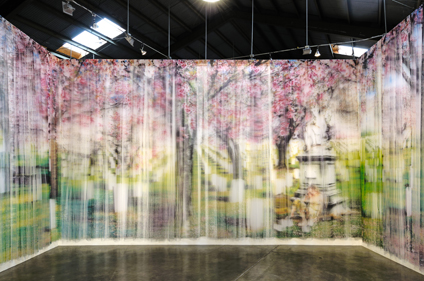 |
Tonight the air is many envelopes
again. Tell her to open them at once
and find hurried notes about my longing
for wings. Tell her to speak, when that hour comes,
simply of the sky. Friend, speak of the sky
when that hour comes., Speak, simply, of the air.
|
|
Jacki Lyden Talks with
Agha Shahid Ali (video)
for NPR, All Things Considered
at Izhar Patkin's Studio,
July 2001, New York City |
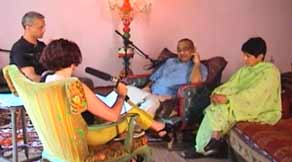 |
Agha Shahid Ali (आगा शाहीद अली) (1949 - 2001) was an English poet of Kashmiri ancestry and upbringing. His poetry collections include The Half-Inch Himalayas, A Nostalgist's Map of America, The Country Without a Post Office, Rooms Are Never Finished (finalist for the National Book Award, 2001), Call Me Ishmael Tonight, a collection of English ghazals. Ali was also a translator of Faiz Ahmed Faiz (The Rebel's Silhouette; Selected Poems) and editor (Ravishing DisUnities: Real Ghazals in English). He was widely credited for helping to popularize the ghazal form in America. |
| |
| Et in Arcadia Ego 2012 |
 |
| |
|
|